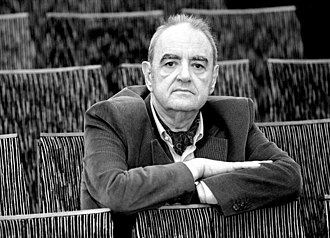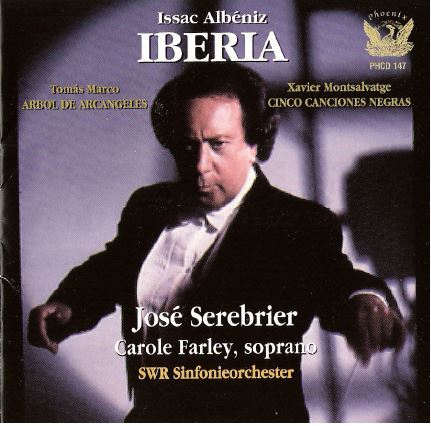
Marco, Tomas
Marco was born in Madrid where he later studied violin and composition, while at the same time pursuing the study of law (he received his licenciate in law in 1963). He turned to composition in 1958, and in 1962 began attending the Darmstädter Internationale Ferienkurse, where he furthered his studies with Bruno Maderna, Pierre Boulez, Karlheinz Stockhausen, György Ligeti, Gottfried Michael Koenig, and Theodor W. Adorno. In 1967 he participated in Stockhausen’s collective composition project Ensemble at Darmstadt.
His compositional style is rooted in the music of the Darmstadt School. For example, Transformación (1974) strongly recalls Ligeti’s Lux aeterna (1966)—both are composed for 16 solo voices—as well as the harmonic overtone-singing of Stockhausen’s Stimmung (1968). In 1965 he began a brief association with the neo-Dada composers’ group Zaj, founded the previous year by Walter Marchetti, Juan Hidalgo, and Ramón Barce.[1] He helped to found the Studio Nueva Generación in 1967,[2] by which time some of his compositions were beginning to include references to historical styles and quotations from earlier composers—for example, Angelus novus (1971) refers to Gustav Mahler, the Cello Concerto (1976) is based on themes by Manuel de Falla as well as the Cant dels ocells by Pablo Casals, and his Fourth and Fifth Symphonies (1987 and 1989, respectively) both use a quotation from Richard Strauss‘s Also sprach Zarathustra[3] —and for this reason his name is sometimes connected with the German New Simplicity composers.[2] Around 1970 he began to employ traditional forms such as the symphony, sonata, and, especially, the concerto. His return to nationalism involves amongst other things a number of important works for the guitar, including three concertos.[4]
In addition to the effect of his prodigious compositional output, he has had a strong influence on Spanish musical life through his work as a critic, broadcaster, writer, editor, educator, and administrator. After five years working as a music critic for various newspapers and magazines, in 1967 he founded, together with Ramón Barce, the magazine Sonda, dedicated to the subject of contemporary music. For eleven years he worked in the music division of the Radio Nacional de España, and for three years was professor of music history at the Universidad Nacional de Educación a Distancia (UNED) and professor of composition at the Conservatorio Real in Madrid. He has served as technical director of the Spanish National Orchestra (1981–85) and the Center for the Promotion of Contemporary Music (1985–95), and founded the Alicante International Contemporary Music Festival which he directed for eleven seasons. In 1996 he became Director General of the Instituto Nacional de las Artes Escenicas y la Música (National Institute for Music and the Performing Arts), a post he held until 1999.
Marco has twice been awarded the Spanish Premio Nacional de Música, in 1969 and again in 2002. He won the Prix d’Honneur of the VI Bienalle de Paris in 1969 and, in that year as well as in 1971, received prizes from the Gaudeamus Foundation in the Netherlands. His composition Autodafé was awarded the Golden Harp Prize in 1975, and the UNESCO Young Composers’ Prize at the International Rostrum of Composers in 1976. For his activities as a broadcaster he was awarded the Premio Nacional de Radiodifusión in 1975. In 1993 he was elected to membership in the Real Academia de Bellas Artes de San Fernando, and in 1998 was awarded a Doctor Honoris Causa by the Universidad Complutense de Madrid.
